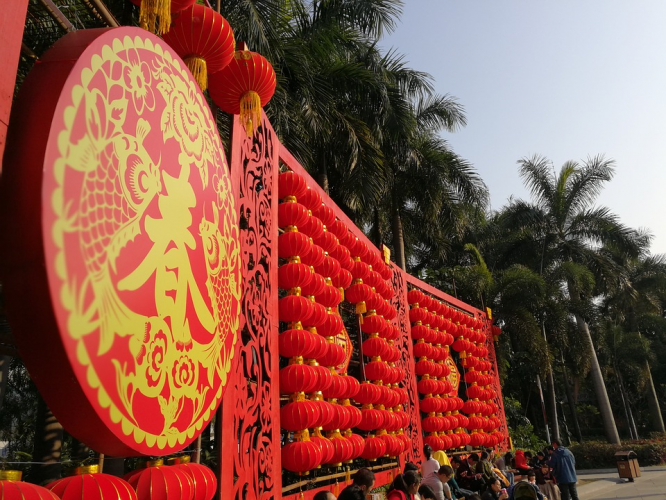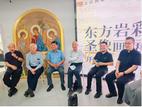The reason why Jewish people are called the people of God is marked by the style of their lives and the content stipulated in their Law, which are then known as the cultural life and customs of Jewish people. So after people are converted to Christianity, they also need their own religious identity markers, which distinguish them from non-believers. This is both a Christian religious identity and a Christian group boundary to the world. This boundary inevitably conflicts with the traditional customs of the world.
I know a believer in the neighboring village. I and his son are classmates. Because I believe in the Lord so I pay attention to his religious practice.
Brother Li is in his fifties, and he has four brothers and three sisters. Now his extended family has up to 40 or 50 members, and among them he is the only Christian.
The reason he became a Christian was because he had a disease more than a decade ago which got no better even after seeing doctors for a long time. Later, the village's Christian neighbor preached to him that his practice of worshipping idols was a sin, and that was God's punishment for him. Only by believing in the Lord could he be healed. With a half-believing mind, he went to a church. He was later baptized as a Christian. After six months of his conversion, his health improved and he was convinced that it was Jesus' blessing. Finally, his body was fully recovered and he attributed this to the Lord's blessing. So he preached the gospel to his wife, who later accepted it.
Brother Li was very religious because the Lord had allowed him to recover from his illness. He has never been absent for Sunday services even during the busy farming seasons. When he gets sick, he lets his wife take him to the church on a tricycle.
Because of his belief, he has stopped practicing his village customs, especially the Spring Festival tradition, which caused a great conflict between him and his extended family in the beginning.
In the countryside, the Spring Festival is not only about eating dumplings and setting off firecrackers, but also about worshipping the Year (年, pronounced "nian" in Chinese, is the name of a monster in ancient Chinese mythology), worshipping gods and cemetery visiting (rituals in memory of the dead). And these customs make it very difficult for the Christian brother Li.
On the day of the Spring Festival, the village's old and young will go door-to-door to pay homage to the Year; not only do they pay homage to their own elders, but also to the other elders of the same village, so a homage is owed to each elder. That is why on the day of the Spring Festival, the village road is full of groups of people who visit the various households to bow to the Year, and the family head will prepare things like cigarettes and peanuts to greet the Year worshippers. Brother Li believes that Christians cannot kneel to worship idols, and therefore cannot bow to the living and the dead. Consequently, every spring, he does not bow his head, and refuses the invitation of his fellow brothers to pay New Year homage to their elders; that makes his brothers feel that he is very impolite. Because the people's elders always visit his home to do the New Year worship while he refuses to do the same to other elders, it makes him look bad.
As a result, brother Li and his wife were under a lot of pressure. Why has he stopped bowing? Was there some other reason? A brother of the church gave a testimony that on his way to Year worshipping, he once fell off his bicycle and broke his front teeth. That was his punishment for idol worship. Therefore, brother Li, who had recovered from his former illness after conversion, will not dare to bow again.
Another Spring Festival custom is to sacrifice to gods, but that did not put much pressure on him. On the midnight of Chinese New Year's Eve, or during the early hours of the New Year's day, every family is supposed to setup a shrine in the living room, light it up with incense while burning "hell money" and also praying to the spirits for good harvest in the coming year. This was considered by brother Li to be a typical act of idol worship, so he was determined not to sacrifice to gods after his conversion. Because the sacrifice to gods is a domestic matter and does not involve the extended family, he did not feel any pressure in his decision to stop practicing it.
The third custom, cemetery visiting, brings a lot of criticism to him. The second day of the Chinese New Year is the day of cemetery visiting, and the main members of the whole family will go to the graveyard of their dead ancestors to burn "hell money" for them. It was just less than three years since his died, so it was even more solemn to go to the grave every year. During the first year of the conversion, he and his wife had to go because of the pressure. But an accident once occurred on a visit to the grave, which made him decide to stop doing it forever.
On that day it had just rained so the ground was very slippery. His mother's grave was originally planted with sweet potatoes with many drainage ditches, which made the area quite slippery. He twisted his ankle while walking, could barely walk and needed help to return home. After a month's rest at home, he could properly walk again. It was considered God's punishment for his practice.
In the following year he was determined not to go, so he was deemed by his brothers and sisters to be disrespectful, drawing criticism from his neighbors and relatives.
On the spring festival day, there is no New Year's custom in brother Li's family except to eat dumplings and paste couplets. He thinks pasting couplets is a biblical tradition. In Egypt, God wanted to cut out the eldest sons of the Egyptians, so He let the Jews kill firstborn sheep and put the blood on the door as a mark; so the couplet represents the blood of the sheep. It's just that the written content on the couplet is replaced by a tribute to God's grace.
As time went by, people became aware of his Christian faith; times have changed, the young have become less concerned about worshipping their ancestors and worshipping the Year. More young people now do not worship on New Year's Eve, so brother Li is no longer under much pressure.
What is custom? I think that there are two main sources of custom, one is religious taboo, and the other is the identity of hierarchical society.
Religious taboos stem from people's worship of gods, abiding by certain laws in order to worship those gods. Breaking those rules will bring disaster. After the establishment of the Zhou Dynasty (approx. 3,000 BC), the Zhou kings stipulated the Zhou rituals. Zhou rituals specified in detail the clothes, wording and manners of people of different ranks and identities; for example, in funerals, the rituals used for the funerals of close relatives and distant relatives are also to be marked by their ranks and identities.
Whether it is from a religious or a hierarchical source, some customs have the function of identity and rank, with only a few used for blessings and hope. But in Jesus' teachings, both were cancelled. Jesus emphasized the equality and freedom of man in God's kingdom, and therefore internalized the outer manners and customs into the inner mind and honesty.
When we look at brother Li's case, we find that brother Li's treatment of Christian customs and traditional customs is actually a state of mind. Before the conversion, the New Year's sacrifice was for gods to bring him great harvest and good luck; his decision to stop sacrificing to gods after conversion is out of fear of provoking God's anger, which he believes will make him less fortunate in the coming year. Refusing cemetery visiting too is in hope of God's blessing.
In short, in brother Li's eye, every path he decides to take is for the sake of future success. The difference is that it used to be blessings of the traditional gods, and now it is God's and Jesus' blessings.
Therefore, brother Li's example also shows that the dispute over customs brought about in the name of religious belief is nothing more than a dispute of identity, and its internal interests tend to be the same; it was previously the blessings of Buddha that have now been replaced by those of a jealous God.
- Translated by Charlie Li












